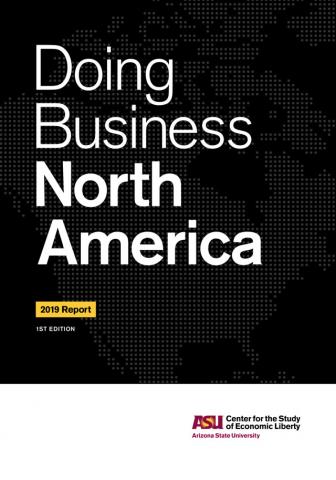
Reports
The Doing Business North America 2019 study covers 115 cities across 92 states, provinces, and federal districts of the U.S., Canada, and Mexico. The largest city from each state or province is included, and in the case of especially large US states, up to four cities in the states have been included. The report also includes the federal district of Washington, DC. Specifically, the report includes 65 US cities, 39 Mexican cities, and 11 Canadian cities. The DBNA report is an annual study and each year we hope to expand the report with more cities and more regulatory measures in future years.
Doing Business North America
2019 Report
View by Chapter
Foreword
City Ranking
Category Ranking
City Snapshots
Appendix
Acknowledgements
Over the years, researchers have begun to understand how robust measurement and ranking of regulations that either enhance business activity or constrain it can provide substantial insight into economic outcomes. Objective measurements of those regulations have been vital in this understanding.
Every year since 2001, the World Bank has measured and categorized more than 100 different aspects of the laws pertaining to opening, operating, and liquidating a business in the primary business cities of every country in the world. The report, titled Doing Business, scores and ranks cities over a long timeframe and has been an invaluable tool for policymakers and scholars to analyze the beneficial economic improvements that can follow the well-designed liberalization of business regulations and policies. It also gives the ranked cities on this list a gauge of how well they rank and how far they may have to go to improve the ease of doing business, as well as a history of how far they have already come.
While the DBNA is inspired by other similar reports that score and rank locations on the burden of business regulations, this study seeks to drill down further than most of them do. Many studies to date look only at state-level policies. Very few focus on the city level.
The DBNA study seeks to provide the same service to scholars and policy-makers as the World Bank study and other similar studies.




